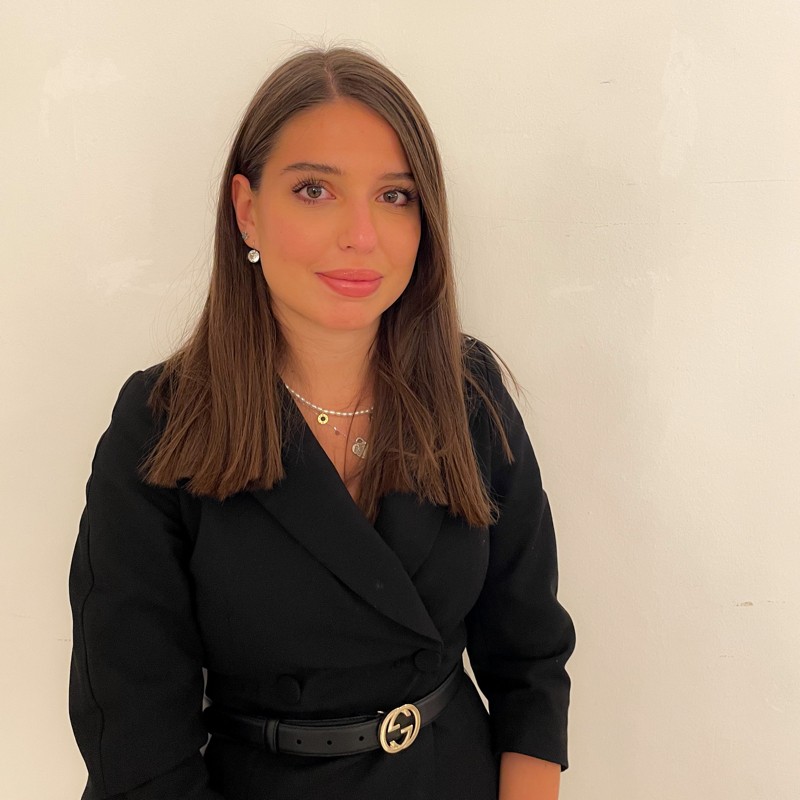Wondering what the trends of the fast-growing industry and new technologies of the future are? We wanted to bring new knowledge and experience of internationally renowned experts and investors closer to you with a two-day business conference CEED Founders Talk: Reimagining the Future, which took place in Ljubljana on the 6th and 7th of September. We were joined at the conference by entrepreneurs, investors and experts from the US and Europe, who shared their thoughts and experiences about sustainability, company growth and trends. The conference was organized within the Startup Plus program, co-financed by the Slovene Enterprise Fund and the European Union. The entire event was conducted by the CEED Entrepreneurial Network in collaboration with CEED mentors, entrepreneurs and members, and Nomadic Minds that brings together internationally successful entrepreneurs and investors from Silicon Valley.
The conference was attended by more than 60 participants, four peer-peer meetings and as many as 22 mentoring meetings were organized.
If you read on, you will find many interesting tips, tricks and stories from the experts who lectured at the conference. You might learn what zero-day marketing is and how Zynga used it with Farmville and how to achieve growth of an organization through downsizing. Also, take a look at why sustainability is a must, how they keep the engineering staff at DataRobot, and what those small daily steps are that will help you grow your business.
‘Just evil enough’?
Wondering how to break through the noise of digital marketing and create profitable campaigns? Emily Ross, co-founder and CEO of Inkvine, where they deal with strategic communication for deep tech companies, told us more about the subversive mode and zero-day marketing.
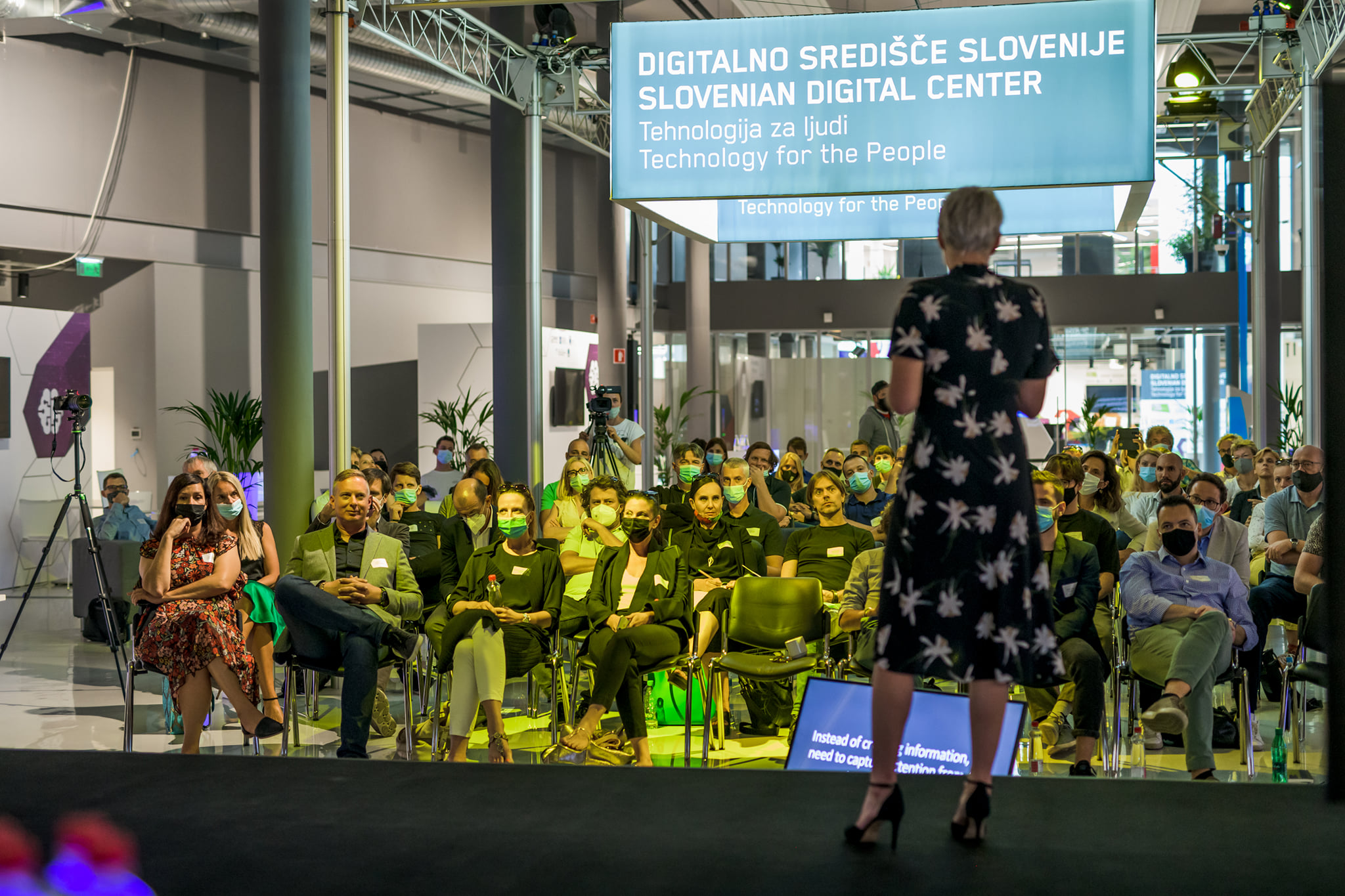
In her book “Just Evil Enough” Emily discusses various approaches and examples. Keep reading and you will find out how Farmville has reached more than 70 million users in 9 months through zero-day marketing.
Emily asked us, what is harder, to create a product or to convince people that they care about our product? Of course, the answer is that it is much harder to reach people. However, most companies still devote as much as 90% of their time to product development, while forgetting the go-to market strategy that is key to success. So instead of flooding the information market, we need to get the attention of our target market. We need to figure out how to create attention, attract it, and use it to our advantage, which is what the book covers.
If we play by the rules, we will lose
We will not attract attention if we play by the rules. We are all taught to play by the rules, but if we do that, we will lose because everyone knows the rules.
Think about Amazon, Facebook, Tik Tok, Google, Instagram or Twitter. Are you also one of those who pay to gain attention on these platforms? Then you play by the rules as well. All of these platforms have written the rules and you play by them, so you have to think subversively, differently. To hack these platforms and get attention. Now, as a startup, you’re not just competing with other startups, but with every Tik Tok clip, meme, and distractor online. If you want to gain attention these days, you have to think unconventionally.
How to think unconventionally?
It’s much easier said than done to actually think unconventionally. A great way to start is to think about hacking. Hacking is the search and exploitation of vulnerabilities in a computer system or network. We know two types of hackers, those who use no tricks and are like fun clowns in the world of cybersecurity and those who discover new things.
The first are called script kitties and they take advantage of all the known disadvantages vulnerabilities of a system. Others are much more interesting, we call them zero-day architects. They use a subversive way of thinking to find new, undiscovered opportunities and take advantage of them.
How can we transfer the idea of a zero-day architect into our marketing strategy?
In marketing, script kitties are called growth hackers and are those that use tried and known tricks. You have to be a zero-day architect and try new and not yet established tricks in marketing.
How Farmville took advantage of zero-daz marketing:
You’ve probably heard of Zynga, a company that develops online games. Let’s go back to 2007, when Myspace had even more users than Facebook. It is Zynga that, with its Texas Hold up game, is responsible for Facebook surpassing Myspace. Facebook and Zynga soon developed a symbiotic relationship and achieved great success. Farmville was able to run games on Facebook using the API. Zyng’s developers gained access to Facebook users’ user data via the API and detected that key vulnerability that allowed them the opportunity for Farmville players to inform and invite non-gamers to play. In this way, they attracted attention and turned it into profitable demand. With the help of Farmville, they reached more than 70 million Facebook users in nine months, which at the time represented between 10 and 20 percent of all Facebook users.
Zero-day marketing means that we detect a hole in the market and use it to our advantage, just like Farmville did. If we want to succeed, then we have to think in a different, reversed way and take advantage of that hole in the market. Think about zero-day marketing over and over again and try some new ways.
Don't actually be evil because the world is small and connected. Be evil in a way that takes advantage of market failures and turns them into profits. -Emily Ross
Achieve growth through shrinkage
When we hear about growth, we most often think about moving up, building, and rarely shrinking, laying off, and reducing resources. It is about how a company can start growing again when, instead of adding, it removes and instead of building, it destroys. The latter was lectured by the Chief Growth Officer at Iris, Daniel Mori. Daniel is an expert in the use of technology and analytics in strategic marketing and growth hacking, especially in ‘subscription-based’ models in insurance and online dating. Daniel is a mentor to startups in the early stages.
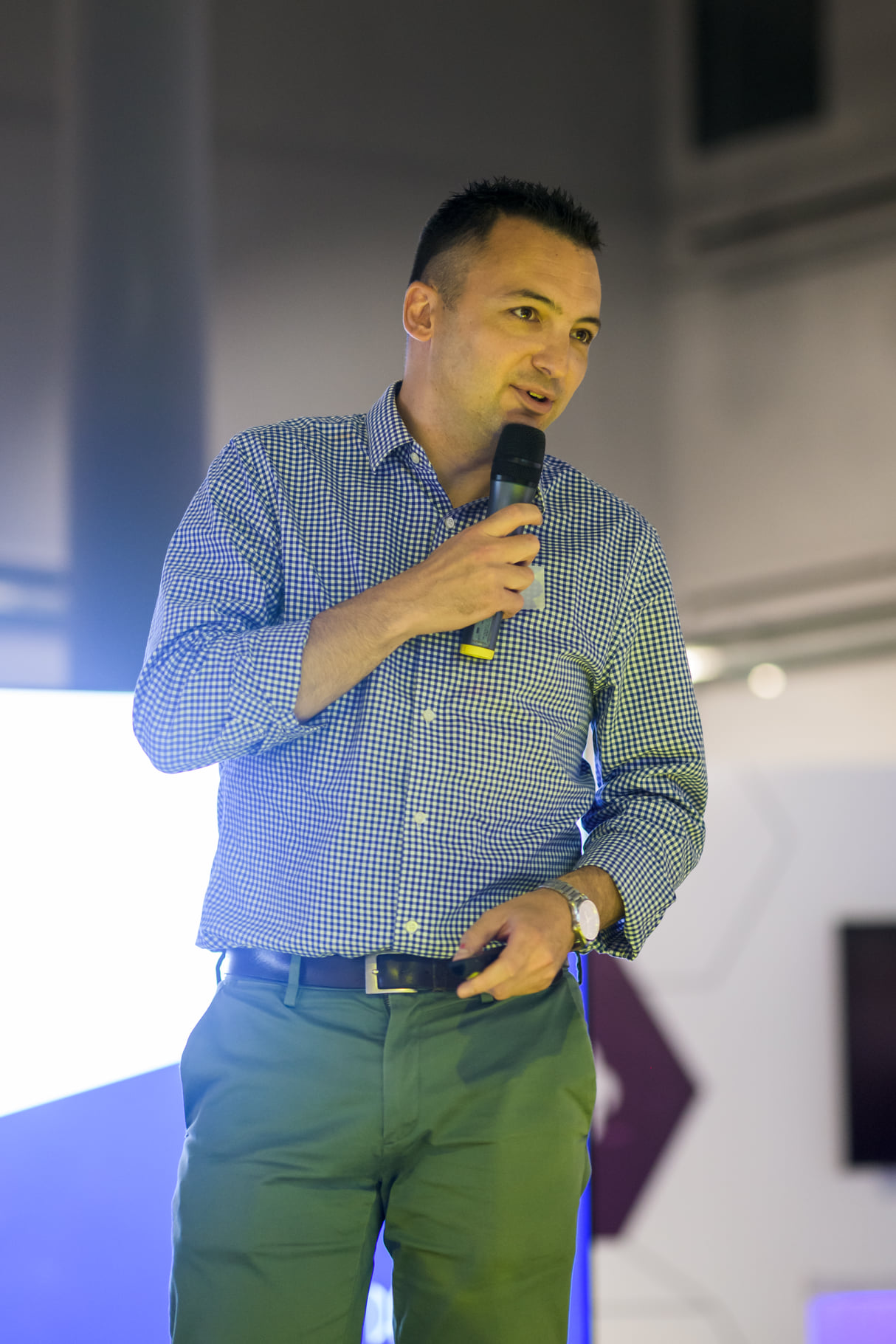
Zoosk in trouble
David used the example of his experience at Zoosk to explain to us how they achieved growth through shrinkage. Zoosk was an online dating site. In 2014, the company found that the company had invested too much in the past and found itself in financial difficulties. The CFO announced changes - layoffs.
First, they cut all departments evenly by 15 percent, then they started firing from below. Employees who were in the company for a longer period of time were less likely to lose their jobs, while those with junior positions were the first to go. The director’s message to employees was that they need to do even more to achieve the same level of production and the same revenue as before. Of course, this approach did not yield good results.
Shrinkage from 15 to 30 percent
One year later, the CFO decided they had to cut 30 percent of the workforce, but this time in a different way. At Zoosk, there was now a completely new team made up of employees who had survived layoffs and heaps of new ones. They realized that firing 30 percent evenly across all departments is pointless, as some are more productive than others. The other thing they did was abandon technology they didn’t need. They kept ones that were useful and necessary to them. They also found that the first approach did not work and that productivity did not increase as they laid off too many junior staff members. Many young people were laid off, while people in middle and senior management mostly stayed at the company. David said they realized they were not “lean” but a bureaucracy. They also began to realize the importance of motivation. With the help of automation, they made work easier for employees, and at the same time their work became more interesting, as they no longer had to devote so much time to irrelevant, repetitive tasks. They were able to invest 30 to 40 percent of their time in work that was creative and useful, and consequently also became more motivated. After the changes were introduced, the company began to develop and grow at an incredible rate. It was successfully sold to one of the biggest competitors within three years.
David stresses that if they hadn’t refreshed the staff and technology in the company, they would never have experienced such success.
He left us with a quote from the poet, journalist and writer Antoine de Saint-Exupéry:
“Perfection is achieved, not when there is nothing more to add, but when there is nothing left to take away”.
Steps that will support your vision for future growth
Are you interested in what are those key small steps on a daily basis that will support your vision for future growth? Growth & Performance Marketing expert at Clip, Ali Jamal, told us more about this. Ali is an angel investor and founder of First Check Ventures. For the past 10 years, he has worked as a Product Manager and Growth Executive at companies such as Zynga, RockYou, Agoda, Rappi and PayClip.
Watch the video below and find out what those key little steps are:
Sustainability is a must
Sustainable development is a "must" in entrepreneurship today. Even when it comes to investing in startups, sustainability is the component that is the norm for an investment to be made. Tristan Pollock, an entrepreneur, angel investor and active member of the startup community, says that the concept of sustainability must be included in the core of operation, because it is not just frosting on a cake, but a mandatory basic ingredient of the cake. A mindset based only on making a profit is totally “out”. Are you interested in how to put sustainability at the core and at the same time successfully lead a team, a company, create profit and growth? Watch the video below.
AI and employee retention in engineering
We can no longer imagine life without artificial intelligence, as it affects various areas such as health, work, business, agriculture, banking, etc. Anton Kasyanov is one of the speakers who told us more about artificial intelligence and machine learning and talked about practical examples. Anton is very close to the field of AI, as he is the director of engineering at DataRobot, where they are creating a platform for artificial intelligence. On the second day of the conference, Anton opened a discussion on the power of engineering talents. Their engineers teams are completely distributed across different offices around the world.
If you are interested in AI and its use in various fields, watch the video below:
Listen to the panel discussion
CEED Founders Talk
CEED Founders Talk konferenca je potekala dva dni, 6. in 7. septembra in je bila sestavljena iz zanimivih predavanj odličnih strokovnjakov, investitorjev in mentorjev ter peer-peer podjetniških skupin in 1:1 mentorskih srečanj. Konferenca je bila brezplačno na voljo startup in MSP podjetnikom, ki se želijo širiti v tujino in narediti korak pri rasti.
The CEED Founders Talk conference (6-7 September) consisted of interesting lectures by excellent experts, investors and mentors, as well as peer-peer business groups and 1: 1 mentoring meetings. The conference was made available free of charge to startups and SMEs for entrepreneurs who want to expand abroad and take a step in growth.
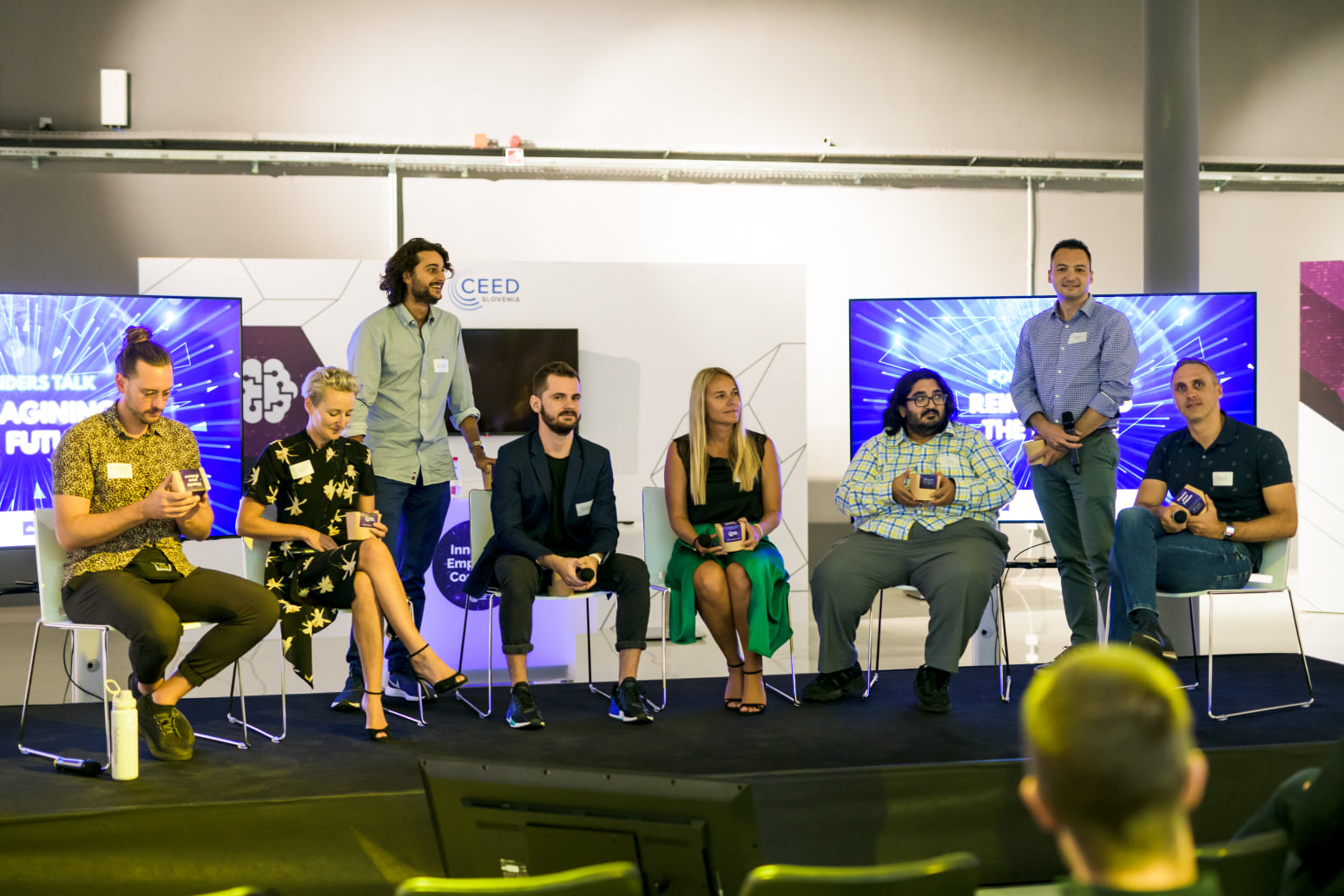
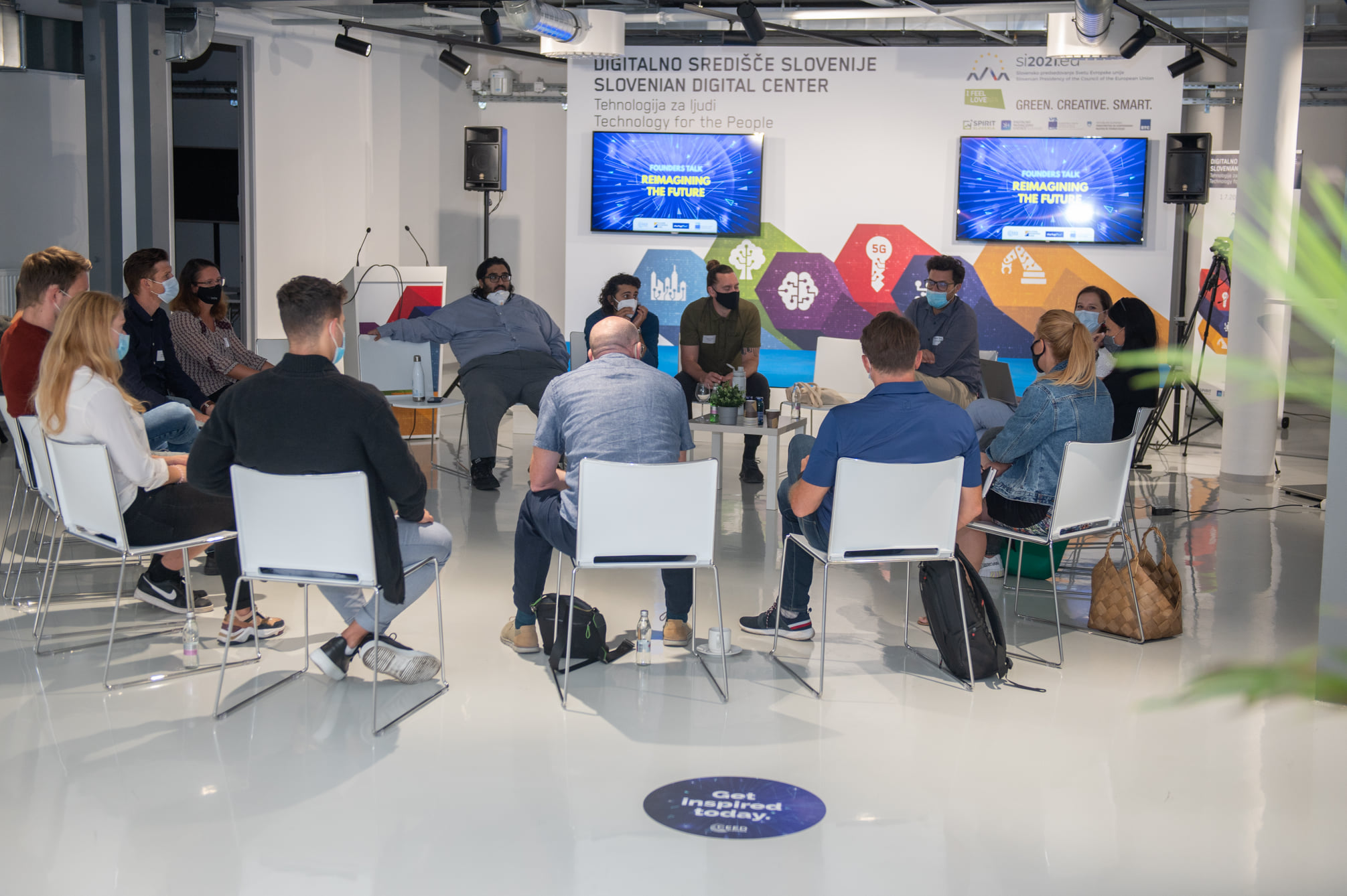
»It's about sharing and reimagining the future together.«
The conference was also attended by startup companies. Take a look at what one of the members of the startup company Karjola, Mateja Treven, has to say about the conference.
There are many other great programs within the Startup Plus program
The Slovene Enterprise Fund also organizes many other top entrepreneurial programs for portfolio companies, such as the Push2start Acceleration Program, Startup Clinic, SK GROWTH CAMP, NextRound, GROWdigital, KorpoStart, INTL, Nextround, School for Investors, HardwareSTART, Health Accelerator and ScaleUPgrade. The content programs effectively complement the financial products P2, SK75 and SI-SK, which provide Slovenian start-up companies with EUR 54,000 to EUR 600,000 in start-up funds.
###
Content support for recipients of P2, SK75 or SI-SK financial products under the "de minimis" scheme is co-financed from the Slovene Enterprise Fund and the European Union from the European Regional Development Fund. This is implemented on the basis of the Content Support for Funds Recipients (SMEs) Programme in the 2018-2023 period, under the Operational Programme for the Implementation of the European Cohesion Policy 2014-2020.
.png)



